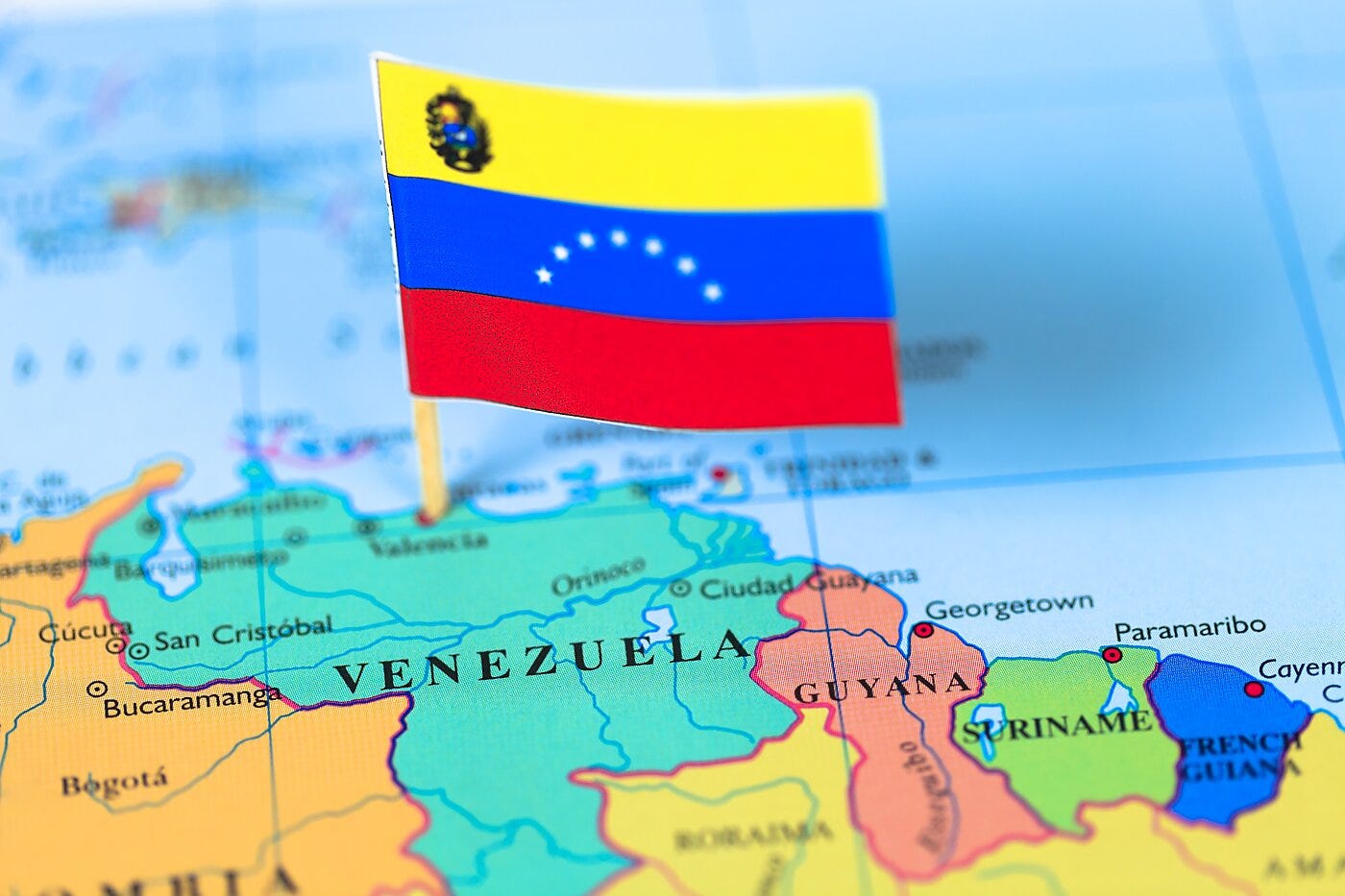Venezuela and Guyana Inch Closer To War Over Disputed Oil-Rich Territory
In a bid to shore up his support amongst Venezuelans, Maudro looks to use the oldest trick in the dictator playbook – instigating a war over nationalist fever.
On the 3rd of December, 2023, Venezuelans went to the polls to decide the country’s relationship with its smaller neighbour Guyana. The referendum consisted of five questions concerning various aspects of Venezuela’s claim to Essequibo, 159,000 km2 of oil-rich territory controlled and administrated by Guyana. Guyana, considering the referendum a step toward annexation, asked the International Court of Justice to halt parts of the vote. In response, the ICJ has called on Venezuela’s government not to take any action that may alter the status quo.
The most controversial question of the referendum was the fifth, which asked Venezuelans if they agreed with "the creation of the Guayana Esequiba state" and its "incorporation into the map of Venezuelan territory". Electoral officials said 95.9% of voters cast a "yes" vote to that question. Elvis Amoroso, the head of the National Electoral Council and a close ally of President Maduro, claimed that 10.5m votes had been cast. This was, however, called into question by Henrique Capriles, Mr Maduro’s main opponent in the 2013 presidential election and one of Venezuela’s opposition leaders, who suggested that considering that voters were asked to respond to five questions, the 10.5m votes only equated to two million voters. Opposition media reinforced these claims, reporting that polling stations across the country had been tranquil throughout the day, casting doubt on the claims made by the government that turn-out had been high. “I have seen no independent reports of queues anywhere in the country. It looked like a normal Sunday in Caracas,” said Phil Gunson, an analyst at an international crisis group.
The referendum and its broader implications risk widening the schism between the two South American nations, with many observers worried it may escalate into a regional war. While the dispute has intensified in recent weeks, bringing the two countries into a contentious diplomatic crisis, it is not a new development; instead, the dispute can trace its origins to a boundary dispute inherited from the colonial powers of Spain and the UK. The region, despite originally being within Venezuelan boundaries during the Spanish colonial period, was found by international arbitrators to belong to Britain, which at the time controlled Guyana, in 1899, a settlement that Venezuela has long since disputed, something it has described as an act of ‘foreign conclusion.’ Guyana, the only English-speaking country in South America, maintains the initial accord is legally binding and asked the ICJ in 2018 to rule as such, but a decision is still years away.
Essequibo, a region larger than Greece, contains large deposits of natural resources; the vast swathes of jungle are rich in copper, gold and oil. Controlling the region would also provide Venezuela access to an area of the Atlantic where large quantities of commercial oil were discovered in 2015.
Maduro, faced with a worsening economic outlook - inflation is still at 300%, the highest rate in the world - and declining political support, looks set to use the oldest trick in the dictator playbook to shore up his support – waging a war on a much weaker neighbour over an irredentist claim to exploit nationalist fever. According to opposition figures, Maduro and his allies hope instigating a regional conflict will distract from claims of vote rigging in next year’s presidential elections. Analysts have already drawn parallels to a former president of Argentina, Leopoldo Galtieri, who led during that country’s military dictatorship and ordered an invasion of the Falkland Islands in 1982, amid declining popularity and economic turbulence.
So far, the consensus of the international community has largely been to condemn Venezuela’s actions. Patricia Scotland, Secretary-General of the Commonwealth of Nations, condemned the referendum proposal on grounds of territorial sovereignty. The leadership of the Caribbean Community voiced support for Guyana, stating that the referendum would have no bearing on international law. Acting as a mediator, the ICJ has also called on both parties to act within the parameters of international law and “avoid conflict at all costs.” In response to the escalating tensions in the region, Brazil increased its military presence along its northern border in November 2023.
The people who live in Essequibo are largely English-speaking, identify culturally as Guyanese and say they want to remain part of Guyana, the only government most have ever known. Many residents enjoy the tranquillity of life in Essequibo and the economic benefits from the oil boom and fear they would have to leave their homes if Venezuela gained sovereignty over the region. Bob Mahadeo, a photographer and video editor, said he didn’t understand how Venezuela could claim the land when it had been developed by Guyanese. “This is our land,” he said. “Guyanese really have to stand up and fight against these people, because this is our hard sweat and earnings here.’’


